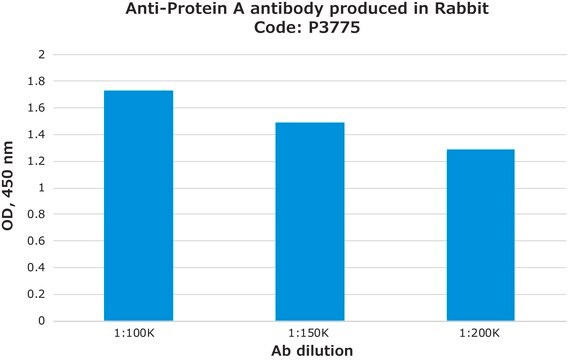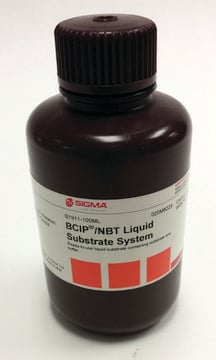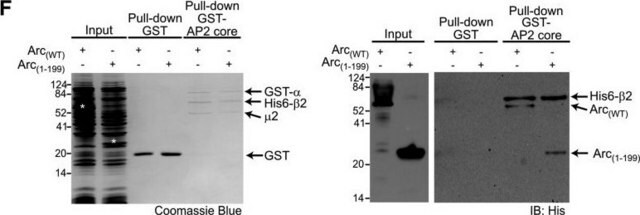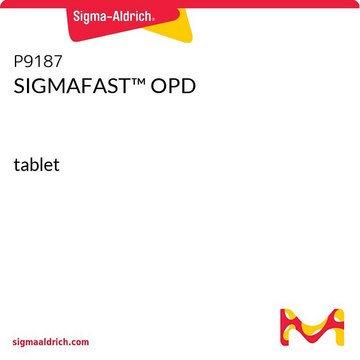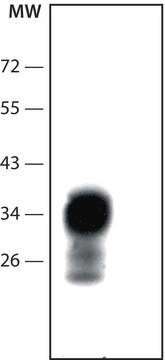AP308A
Goat Anti-Mouse IgG Antibody, (H+L) Alkaline Phosphatase conjugate
1 mg/mL, Chemicon®
About This Item
Productos recomendados
biological source
goat
Quality Level
conjugate
alkaline phosphatase conjugate
antibody form
affinity purified immunoglobulin
antibody product type
secondary antibodies
clone
polyclonal
species reactivity
mouse
manufacturer/tradename
Chemicon®
concentration
1 mg/mL
technique(s)
ELISA: suitable
western blot: suitable
shipped in
wet ice
target post-translational modification
unmodified
General description
Specificity
Application
Immunohistochemistry/immunocytochemistry: 1:200-1:500 (3,4)
Western Blot, chromogenic: 1:200- 1:500 (1,2)
Western Blot, chemiluminescent: 1:2,000-1:5,000 (1)
Optimal working dilutions must be determined by the end user.
Secondary & Control Antibodies
Whole Immunoglobulin Secondary Antibodies
Physical form
Storage and Stability
Legal Information
Disclaimer
¿No encuentra el producto adecuado?
Pruebe nuestro Herramienta de selección de productos.
Storage Class
12 - Non Combustible Liquids
wgk_germany
WGK 2
flash_point_f
Not applicable
flash_point_c
Not applicable
Certificados de análisis (COA)
Busque Certificados de análisis (COA) introduciendo el número de lote del producto. Los números de lote se encuentran en la etiqueta del producto después de las palabras «Lot» o «Batch»
¿Ya tiene este producto?
Encuentre la documentación para los productos que ha comprado recientemente en la Biblioteca de documentos.
Nuestro equipo de científicos tiene experiencia en todas las áreas de investigación: Ciencias de la vida, Ciencia de los materiales, Síntesis química, Cromatografía, Analítica y muchas otras.
Póngase en contacto con el Servicio técnico

